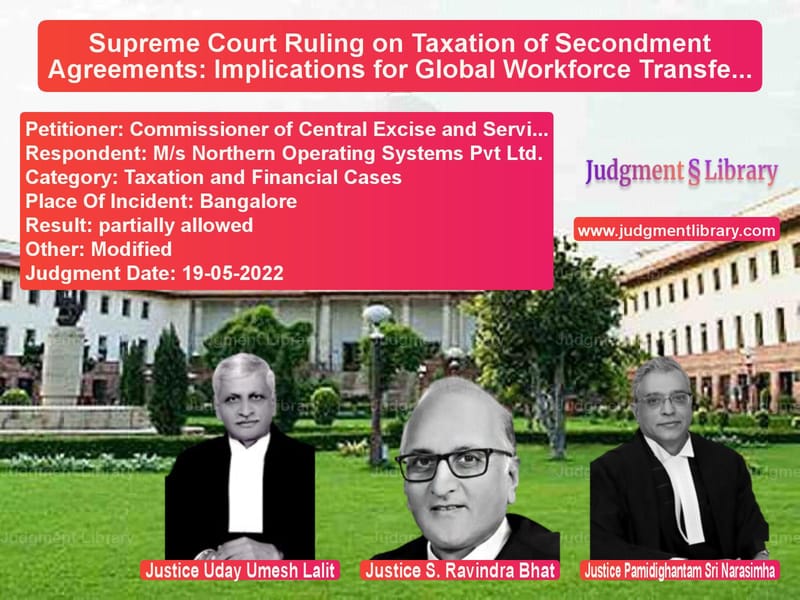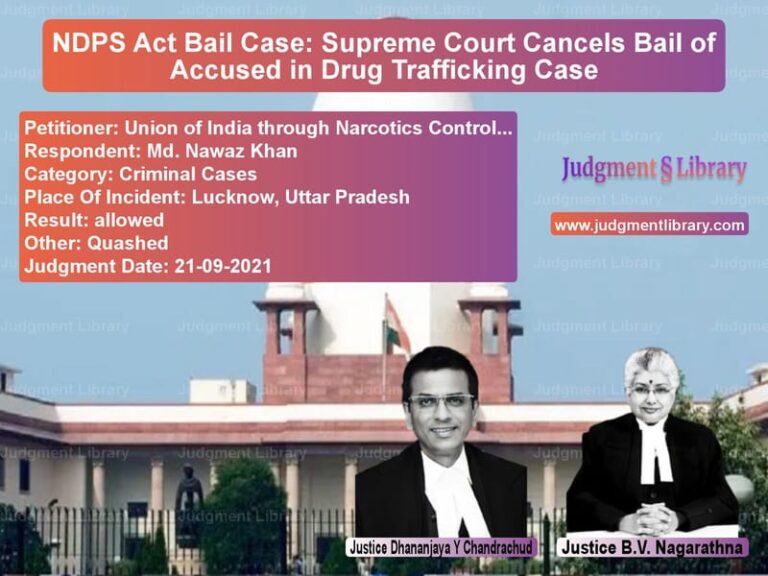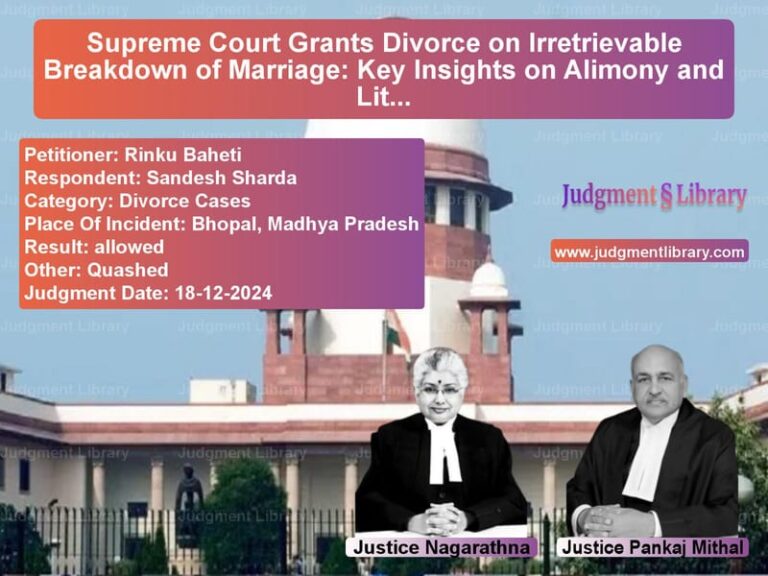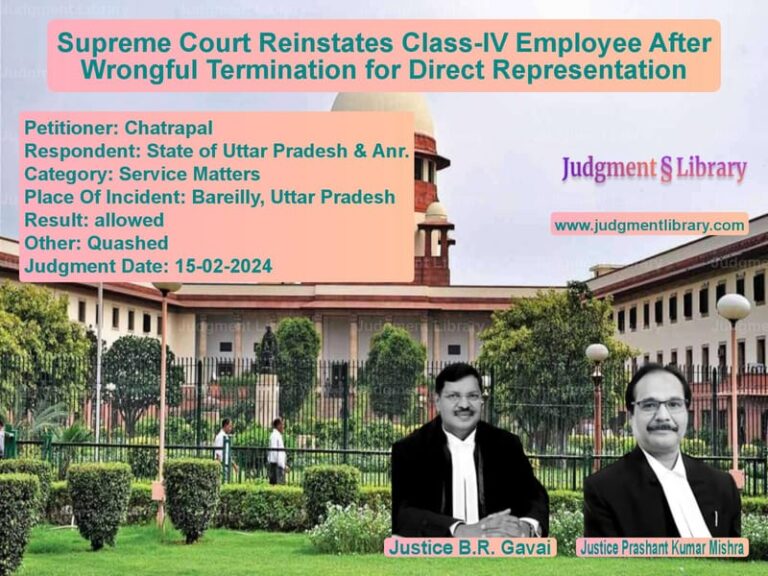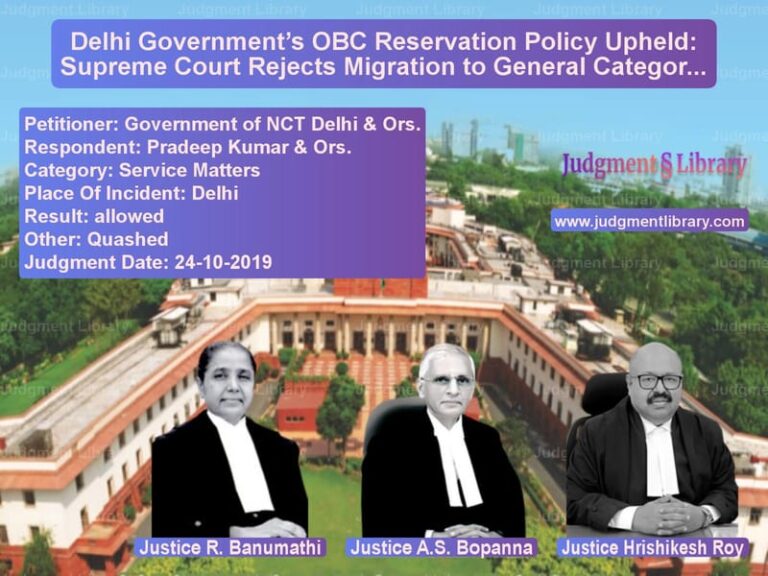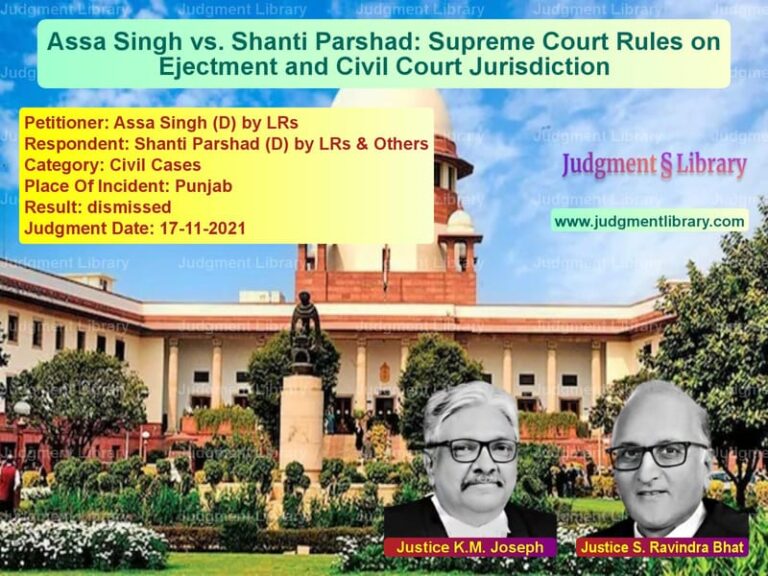Supreme Court Ruling on Taxation of Secondment Agreements: Implications for Global Workforce Transfers
The Supreme Court of India recently ruled in Commissioner of Central Excise and Service Tax (CEST) vs. M/s Northern Operating Systems Pvt Ltd., a case that clarified the tax implications of secondment agreements between multinational corporations and their Indian subsidiaries. The core issue was whether the placement of employees from foreign affiliates to an Indian company amounted to a taxable supply of manpower services under the Finance Act, 1994.
Background of the Case
Multinational companies often deploy personnel from their foreign offices to Indian subsidiaries for specialized assignments. Such secondment arrangements help Indian companies leverage global expertise while allowing employees to gain international exposure. However, tax authorities contended that these secondments constituted a service subject to service tax.
The dispute in this case arose when the Indian tax department demanded service tax on reimbursements made by Northern Operating Systems Pvt Ltd. (NOS) to its foreign affiliates for seconded employees. The authorities argued that such reimbursements were consideration for manpower supply services.
Key Legal Issues
- Whether secondment agreements amounted to ‘manpower recruitment or supply agency services’ under the Finance Act, 1994.
- Whether salary reimbursements to foreign affiliates constituted consideration for a service.
- Whether the control exercised by NOS over seconded employees affected their employment status.
- Applicability of service tax liability and the extended period of limitation for tax recovery.
Arguments of the Petitioner (Tax Department)
- The seconded employees remained on the payroll of the foreign entity, which continued to pay their salaries and benefits.
- The foreign company provided skilled personnel to NOS, constituting a manpower supply service under the Finance Act, 1994.
- The mere operational control of the secondees by NOS did not change their employment status with the foreign entity.
- The reimbursement of salaries by NOS was, in effect, a fee paid for the supply of manpower.
Arguments of the Respondent (NOS Pvt Ltd.)
- Once seconded, the employees worked under the full control and supervision of NOS, making them NOS employees.
- The salary reimbursement was a mere cost allocation, not a payment for services.
- Employment services were explicitly excluded from service tax under the Finance Act, 1994.
- Several past judgments supported the view that secondments did not constitute manpower supply services.
Supreme Court’s Analysis
The Court analyzed the nature of secondment agreements, contractual obligations, and tax principles. The key observations included:
- Secondment agreements primarily benefit the Indian entity, which receives specialized personnel.
- Despite operational control by NOS, the secondees’ salaries continued to be paid by the foreign entity, indicating a service arrangement.
- Even if the secondees were functionally under NOS, their employment remained contractually tied to the foreign entity.
- Reimbursement of salaries was not merely a financial arrangement but reflected an underlying service transaction.
The Court ruled:
“A secondment arrangement where an overseas entity supplies employees, pays their salaries, and seeks reimbursement constitutes a manpower supply service under the Finance Act, 1994.”
Judgment and Directions
- The Supreme Court ruled in favor of the tax authorities, holding that secondment agreements were taxable.
- The extended period of limitation for tax recovery was not applicable, as NOS had acted in good faith.
- The ruling reaffirmed the government’s stance on taxation of cross-border workforce transfers.
Impact of the Judgment
- Global Businesses: Companies with secondment arrangements must reassess their tax structures to avoid unexpected liabilities.
- Legal Precedent: The ruling provides clarity on taxation in employment arrangements between multinational entities.
- Compliance Requirements: Indian subsidiaries must ensure proper documentation of employee contracts to avoid tax disputes.
Conclusion
The Supreme Court’s ruling in CEST vs. NOS Pvt Ltd. establishes a definitive precedent on the taxation of secondment agreements. Companies must carefully structure their international employment arrangements to comply with Indian tax laws while ensuring operational efficiency.
Read also: https://judgmentlibrary.com/gst-refund-delays-supreme-court-lowers-interest-rate-on-late-payments/
Petitioner Name: Commissioner of Central Excise and Service Tax.Respondent Name: M/s Northern Operating Systems Pvt Ltd..Judgment By: Justice Uday Umesh Lalit, Justice S. Ravindra Bhat, Justice Pamidighantam Sri Narasimha.Place Of Incident: Bangalore.Judgment Date: 19-05-2022.
Don’t miss out on the full details! Download the complete judgment in PDF format below and gain valuable insights instantly!
Download Judgment: commissioner-of-cent-vs-ms-northern-operati-supreme-court-of-india-judgment-dated-19-05-2022.pdf
Directly Download Judgment: Directly download this Judgment
See all petitions in Income Tax Disputes
See all petitions in GST Law
See all petitions in Tax Evasion Cases
See all petitions in Banking Regulations
See all petitions in Tax Refund Disputes
See all petitions in Judgment by Uday Umesh Lalit
See all petitions in Judgment by S Ravindra Bhat
See all petitions in Judgment by P.S. Narasimha
See all petitions in partially allowed
See all petitions in Modified
See all petitions in supreme court of India judgments May 2022
See all petitions in 2022 judgments
See all posts in Taxation and Financial Cases Category
See all allowed petitions in Taxation and Financial Cases Category
See all Dismissed petitions in Taxation and Financial Cases Category
See all partially allowed petitions in Taxation and Financial Cases Category

